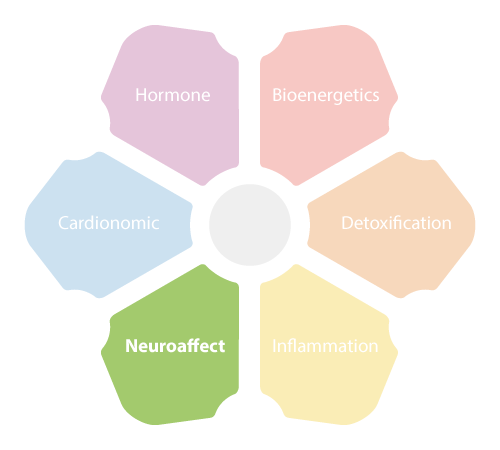 By now, you’ve probably heard just how important meditation is for fighting stress. But have you heard about the miraculous meditation benefits you can gain beyond that? Once viewed as a religious practice, meditation is now gaining major publicity with health-boosting benefits that far surpass basic relaxation. Studies have shown that meditation not only improves the health of your cells but under certain conditions, it has also been linked to significant changes in gene expression.
By now, you’ve probably heard just how important meditation is for fighting stress. But have you heard about the miraculous meditation benefits you can gain beyond that? Once viewed as a religious practice, meditation is now gaining major publicity with health-boosting benefits that far surpass basic relaxation. Studies have shown that meditation not only improves the health of your cells but under certain conditions, it has also been linked to significant changes in gene expression.
Meditation is defined as a means of transforming your mind in order to achieve a calm and peaceful state. Moreover, it can be viewed as taking responsibility for your own state of mind and making positive strides toward changing a negative mindset for the better. With all the stressors of the modern world, many of which are out of your control, it can often be difficult to remain focused, positive and vibrant. Many cultures and individuals believe meditation is the most important thing you can do for your overall wellbeing. In fact, it may be the key to relieving anxiety, phobias, confusion, and other confusing states of mind that disrupt the human body.
There are a number of meditation benefits. This simple practice of renewing your mind can promote
Meditation has been used for centuries as a transformational technique and to gain a new understanding of life. Conventional medicine is now just starting to recognize the depths of this wellness practice and the important role it can play in our lives in terms of managing stress and preventing illnesses.
A study recently published in Translational Psychiatry examined some of these purported meditation benefits in healthy non-meditators. Female participants were recruited to live at a resort for six consecutive days and split into two groups: meditation retreat and relaxing on-site. Both groups were compared to another group of ‘regular meditators.’ The researchers tested each participant’s blood for aging-related biomarkers as well as transcriptome-wide expression patterns before and immediately after the retreat, and then again one month and ten months later.
The genome contains the set of instructions (DNA) for making proteins, whereas the transcriptome contains copies of this DNA, called RNA, which indicate whether or not certain genes have actually been switched on. Thus, by analyzing RNA sequences, the researchers were able to determine which genes were being switched on or off in the cells and tissues in response to meditation.
As anticipated, large differences in gene expression were observed between the meditators and non-meditators. Those who meditated during the six-day period experienced enhanced regulation of their stress response system, improved immune system function, and an increase in amyloid beta metabolism—amyloid buildup can damage nerve cells, eventually leading to the memory loss associated with Alzheimer's disease. Regular meditators also exhibited different gene expression patterns, with less regulation of protein synthesis and activity and a decrease in viral genome activity.
All participants experienced a reduction in stress-related biomarkers, however, the meditation group were able to maintain lower stress levels for longer compared to the relaxation only group. Furthermore, those who meditated regularly had an additional increase in telomerase activity—an enzyme that slows down aging. Meditation benefits are now being recognized as a powerful tool for promoting overall wellness.
Meditation can be simple. For beginners, it may be better to sit or lie down in a comfortable position, preferably with your back straight, which will allow you to breathe deeply and completely expand your lungs. For the first time, don’t make any effort to control your breathing, just try to breathe naturally and rhythmically. You should also close your eyes and focus your attention on inhaling and exhaling. Notice how your body moves with each breath. First, aim for 3–5 minutes of meditation practice, then progressively work your way up to whatever length of time you need or feel comfortable with. You may notice meditation benefits immediately but it may also take a few attempts.
There are many different meditation methods. For the best results, find the type of practice that suits your personal needs. There’s no right way to meditate and there’s certainly no preferred method. You’re invited to explore the different types of meditation until you find one that works for you. Some popular methods include:

The base of most meditation techniques begins with using your breath as a point of concentration. By doing so, you’ll begin to notice how frequently your mind jumps from one thought to the next without any control or effort. Concentrating on your breath can have a positive effect on your physical and mental state. The art of learning how to concentrate and focus is a great way to reduce anxiety, alleviate future worries, and bring yourself back to the present moment.
 Adrenal Fatigue is one of the most prevalent stress-induced ailments in our society today. The stress you experience in your daily life can manifest itself internally and will begin to cause physical and mental damage to your body. Your adrenal glands will become injured and no longer able to handle the stress of everyday activities. The NeuroEndoMetabolic (NEM) stress response system is your body’s main defense against stress and is comprised of six closely-linked circuits. Since these circuits are interconnected, if stress causes your adrenals to fail, your entire body will be affected, including the neuroaffective circuit.
Adrenal Fatigue is one of the most prevalent stress-induced ailments in our society today. The stress you experience in your daily life can manifest itself internally and will begin to cause physical and mental damage to your body. Your adrenal glands will become injured and no longer able to handle the stress of everyday activities. The NeuroEndoMetabolic (NEM) stress response system is your body’s main defense against stress and is comprised of six closely-linked circuits. Since these circuits are interconnected, if stress causes your adrenals to fail, your entire body will be affected, including the neuroaffective circuit.
Chronic stress is particularly damaging to your neurotransmitters, which are the main components of the neuroaffective circuit and transmit important signals around your body. If you are suffering from Adrenal Fatigue Syndrome (AFS), the circuits of your NEM system will be unbalanced. Therefore, many of your hormones will be allowed to run amok, and floods of adrenaline, norepinephrine, and serotonin could eventually desensitize your body, leading to a number of neurological disorders, including anxiety, insomnia, and depression.
Meditation is a safe and natural way to manage the stress that affects us all neurologically and requires nothing other than time and practice. So, you don’t have to be afraid of any additional medications or supplements that could cause further harm to your already destabilized body.
All types of meditation encourage both physical and mental being, and in turn, a healthy lifestyle. However, this is not a result-oriented practice. Fixating too much on obtaining results quickly will only create further anxiety and could even counteract all of the mediation benefits you’re trying to achieve. Most research shows that meditation can work quickly. In fact, once a regular practice has been established, practitioners have reported improvements in their mental state immediately following a session.
A word of warning. If you feel your attempts at meditation are causing you more anxiety rather than promoting a positive mindset, stop the practice. If you’re suffering from AFS, your mental and physical state will already be compromised, so adding stress-inducing activities could potentially do more harm than good.
© Copyright 2020 Michael Lam, M.D. All Rights Reserved.
One of the main meditation benefits is that it can help you manage the stress of everyday life. Meditation focuses on preventing your body from experiencing the negative effects of stress and can be a simple and easy way to deal with stress, particularly if you’re suffering from AFS.
